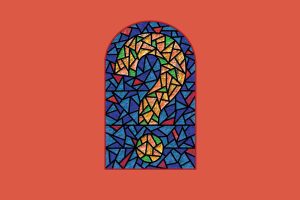A lot of people—even the kind who go to church—wonder if the Bible is true or just stories. The best answer to that question is: The Bible is true. And some of it really happened.
Does that mean the Bible contains mistakes? And if we can’t count on its historical accuracy or freedom from scientific error, in what sense can the Bible be said to contain truth? The Second Vatican Council explained the Bible’s validity in this way: “The books of scripture, firmly, faithfully, and without error, teach that truth which God, for the sake of our salvation, wished to see confided to the sacred Scriptures” (Dei Verbum, 11).
This careful scholar-speak underscores that whatever truth is needed for our ultimate rescue from sin and death is entirely and safely transmitted by these sacred stories. While we modern folks rely on science to “tell us the truth” about reality, our ancestors used storytelling as the preferred medium for conveying what is genuine and reliable. Are there discrepancies between the cultural awareness and scientific sophistication of writers who lived 2,500 years ago and today? Most certainly. Their antique perceptions of the world don’t jeopardize the transformative story of how God is creator, redeemer, and sanctifier of us all.
Catholics believe both Testaments of the Bible were written, edited, and collected under the inspiration of the Holy Spirit. This makes God the Bible’s “author” in an overarching sense. The word author in Latin is broader than in English, it suggests a producer rather than a copywriter. It implies God worked freely with human collaborators, using each writer’s particular skills to bring divine truth to light. This explains why the psalms are in prayer form, the creation story is mythological, the Song of Songs is a poem, and the book of Ruth is a novella. The human writers didn’t just take dictation. They were full partners in the project. Wherever human beings are involved, naturally, human imperfection can’t be far behind.
Second-century church father Origen envisioned that God “illuminated” the minds of sacred writers—a process quite different from, say, the mental takeover of the Borg Collective on Star Trek. Resistance, we gather, was possible for biblical authors. Origen allowed for levels of inspiration, depending on the aspect of the text in question. He admitted the possibility of error in both Testaments, owing to the human factor. Recall Vatican II’s appraisal of the truth “which God wished to see confided.” Acknowledging prescientific miscalls is a far cry from saying the Bible is either inerrant or total poppycock.
St. Augustine accepted biblical inaccuracies as well as how literary form shapes inspired truth. Thomas Aquinas described inspiration as “something imperfect” within the realm of prophecy. Even in the dim mirror of our present understanding, we can behold God’s face.
This article also appears in the November 2016 issue of U.S. Catholic (Vol. 81, No. 11, page 49).














Add comment